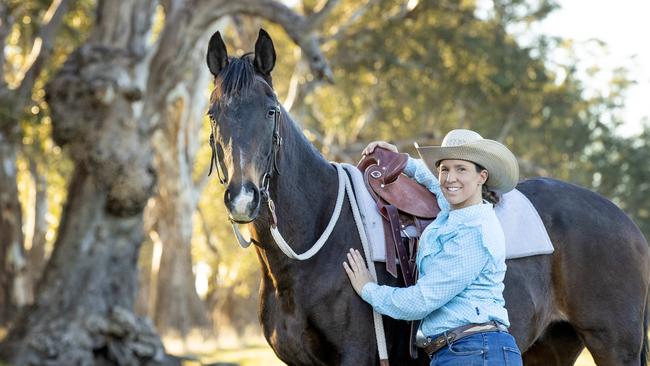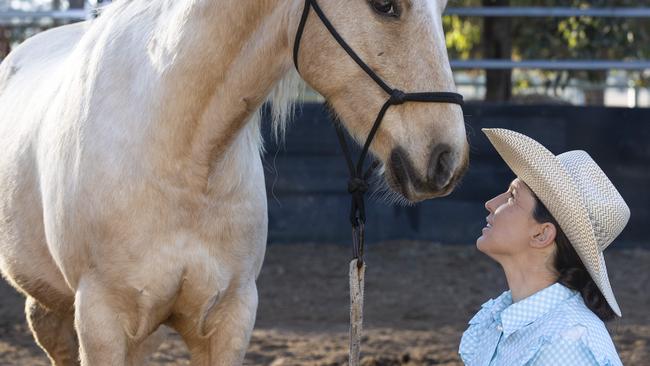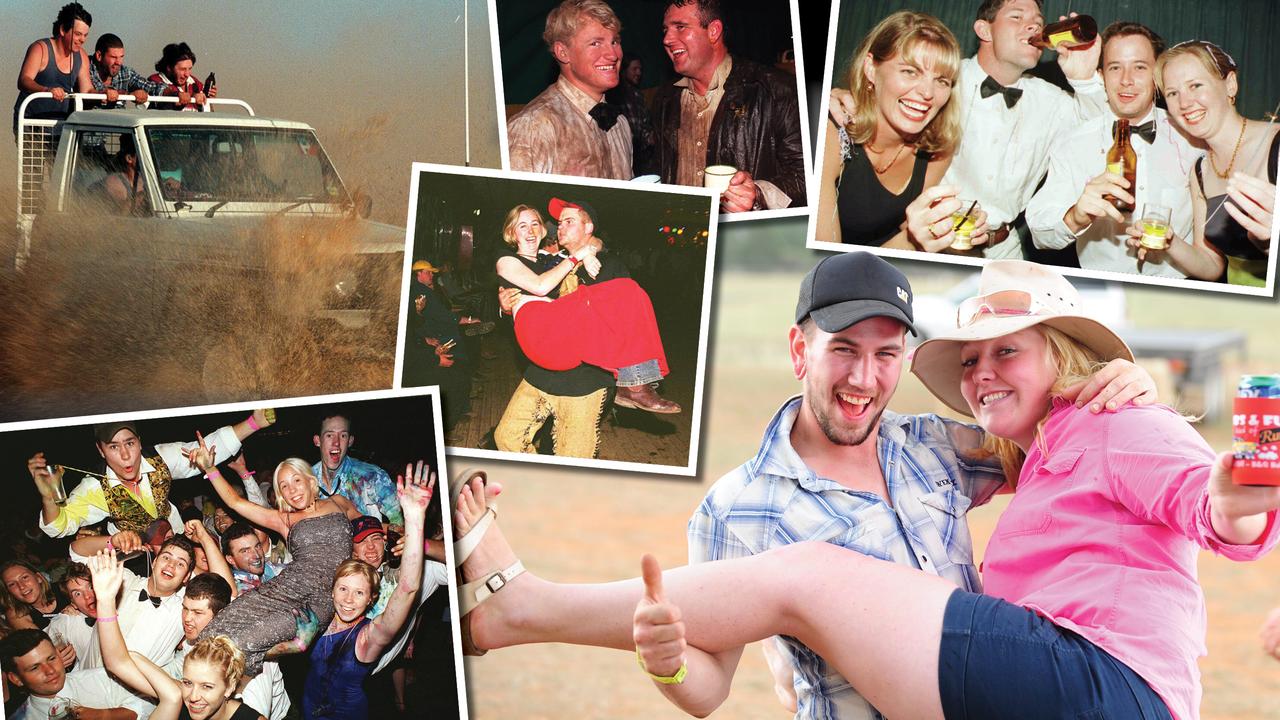Elle Moro: ‘I’m really big on horsemanship being simple’
She once worked closely with dementia patients in aged care. Now, this accomplished horsewoman is turning her skills to empowering riders.
Every time horse trainer Elle Moro interacts with a rider, she aims to leave both person and horse in a better position than she found them, with more confidence and ability as riders.
It’s a motif that has coloured her life, first as a dementia nurse, and now as owner and operator of Hilltop Horsemanship, based near Shepparton in Victoria.
“I just realised there was a big gap in the equine market for that confidence building, and helping people of all disciplines,” the 35-year-old said.
“My goal is to help riders and horses be confident, and to be safe.”
Hilltop Horsemanship works around the principle of empowering riders across all disciplines to gain confidence and to further develop their leadership skills and intimacy with their horse.
It’s an idea stemming from Elle’s childhood spent with in hobby harness racing and a family interest in equestrian.
“My grandfather was the horsey one, and I’m the only one of 18 grandchildren who’s into horses,” Elle said.
“I’m really big on horsemanship being simple, so we can all access and use it. The more knowledge and understanding we have as individuals, the more confident and competent we’ll be.”

After a career spent in aged care nursing, Elle felt it was time to move back into equestrian and horse riding, but took with her the insights she gained from years spent working closely with people as a nurse.
“I look at my nursing career, and the things I really enjoyed was the uniqueness of every person, and every horse and client is a little different and makes you think outside the box. You’re challenged and questioned by students and it’s a great thing,” Elle said.
She now has students spanning eight years to 68 years old, and has also focused on running a series of women’s weekend retreats specifically aimed at giving space and time for women to return to the sport of equestrian in an inclusive environment.

“Women in particular, when you’re working with women struggling with their confidence, coming back from having babies, or having raised children, and there’s a real confidence gap from when they used to ride at 20. They give up so much for their family,” Elle said.
“Horse riding and can be an isolating sport particularly for those returning to riding, and people feel like they’ve been included, and they’ve found a community.”





